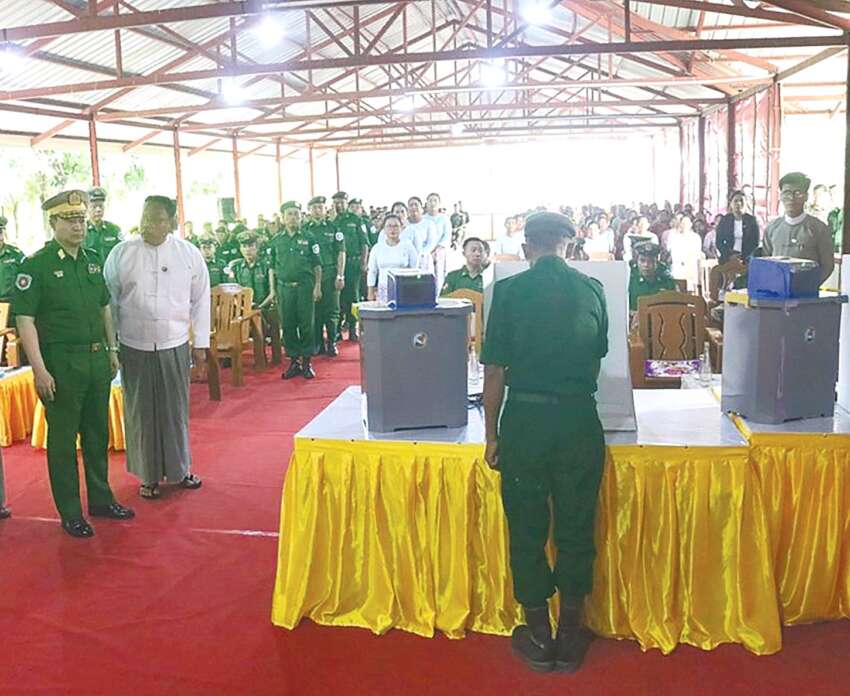
The military council is accelerating the production of Myanmar Electronic Voting Machines (MEVM) for their planned December 28 election, with the military maintaining primary control over the security, operating systems, and technology of these voting machines, according to military sources in Naypyidaw. The council is manufacturing nearly 50,000 electronic voting machines for the entire election and plans to increase production further. The military is directly controlling the technical aspects, operational systems, and security features of the voting machines while maintaining secrecy over these specifications.
Each polling station will be equipped with two to three voting machines, with a minimum requirement of two machines to ensure immediate replacement in case of malfunction. The military is directly manufacturing the machines, which are then collected and received by the election commission based on their records. However, the technical aspects, operating systems, and security features of the electronic voting machines remain under strict military control and are kept confidential.
The Myanmar Electronic Voting Machine system consists of three main components: the Ballot Unit (BU), Control Unit (CU), and Verification Unit (VU). Voters will not need to use paper ballots but can instead vote by pressing a button for their preferred parliamentary representative on the Ballot Unit. The military council claims that voters can immediately verify their votes through a paper slip produced by the Verification Unit. However, reports from individuals who attended training sessions on the use of these voting machines indicate that polling station officers and local election officials have the ability to modify voting results as needed.
The military council unilaterally annulled the results of the 2020 election, in which the National League for Democracy won by a landslide, and is now preparing to hold their own election beginning December 28 of this year. The implementation of these electronic voting machines raises significant concerns about the integrity of the upcoming election, particularly given the military’s complete control over the technical aspects and security features of the voting system. The lack of transparency regarding the machines’ operations and the ability to modify results at the polling station level fundamentally undermines the credibility of any results that may emerge from this election process.



